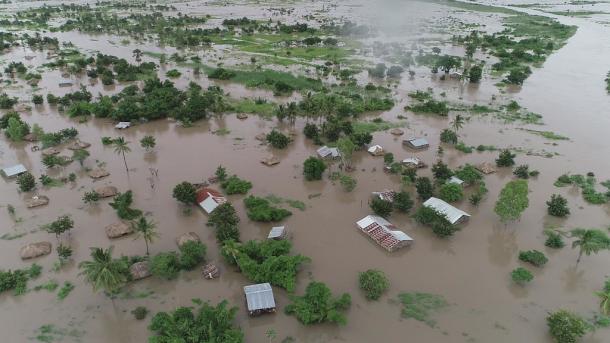The World Meteorological Organization (WMO) has warned that cyclones Idai and Kenneth, which hit Mozambique in March and April this year, should act as a wake-up call to the impact of tropical cyclones, coastal flooding and intense rainfall linked to climate change. A WMO fact-finding mission sent to Mozambique recommended a package of disaster risk reduction priorities to strengthen the nations early-warning systems and cut the socio-economic damage from weather, climate and water-related hazards like tropical cyclones, floods and drought. Petteri Taalas, WMO secretary-general, said, The two cyclones are a wake-up call that Mozambique needs to build resilience. Although the number of tropical cyclones globally is expected to reduce in the future, the number of most intense tropical cyclones (category 4 and 5), associated with more rainfall, will increase in a warming climate. Future sea level rise will exacerbate the impact of storm surge on coastal regions, raising concerns about flooding from the sea, particularly for low-lying cities such as Beira. The report from the international team of meteorologists and hydrologists, headed by WMOs Filipe Lucio, will be presented to an international pledging conference for Mozambique scheduled for June 1, 2019, in the coastal city of Beira. The fact-finding team said that investment of nearly US$27m is needed for the meteorological and hydrological sector. This includes reconstruction, rehabilitation and modernization of infrastructure and equipment; land surveys for flood risk mapping and satellite rainfall estimation; improved database management systems; training on the latest forecasting products; improved standard operational procedures; and better communications tools. In times of floods, Mozambicans seek safety on roofs of buildings, but the ferocity of Idais winds blew the roofs away, said WMOs Lucio, who also used to head Mozambiques national meteorological service. The magnitude of the cyclone, the size of the storm surge and the extent of the flooding overwhelmed years of work by authorities in Sofala to increase community resilience to floods. It is a salutary warning about the future scale of the combined challenges from urbanization and climate change-related sea level rise and extreme weather, he said. This will necessitate much greater emphasis on improved land use, and urban and floodplain planning. The fact-finding teams visit coincided with tropical cyclone Kenneth, which made landfall on April 25, 2019, in Cabo Delgado. The WMO mission focused on Cyclone Idai, especially in terms of damage to hydro-meteorological equipment and institutional coordination and collaboration involving the meteorological, hydrological and disaster management services. However, its general conclusions are meant to inform plans and investments in strengthening the early warning system in a multi-hazard approach, and strengthening disaster risk management in the country, particularly during reconstruction to ensure building back better and the overall strengthening of resilience. To read more about the findings of the WMO mission, click here.
WMO makes recommendations to improve Mozambiques extreme weather resilience

Previous ArticleImpacts of climate change are accelerating warns WMO report
Next Article NOAA unveils next-generation Global Forecast System


